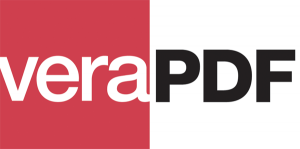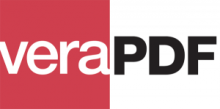|
Digital meets Culture https://www.digitalmeetsculture.net/article/verapdf-1-2-released/ Export date: Sun Mar 1 18:01:50 2026 / +0000 GMT |
veraPDF 1.2 released  The latest version of veraPDF is now available. This release is the first of the PREFORMA testing phase. The release is focused on bug fixing and improvements of the test infrastructure: The latest version of veraPDF is now available. This release is the first of the PREFORMA testing phase. The release is focused on bug fixing and improvements of the test infrastructure:Conformance checker
Policy checker
Documentation
Download veraPDFPDFBox version: http://www.preforma-project.eu/downloads/veraPDF/bin/all-platforms/verapdf-1.2-20170302.zip Greenfield version: http://www.preforma-project.eu/downloads/veraPDF/bin/all-platforms/verapdf-1.2-GF-20170302.zip Release notesThe latest release notes are published at: https://github.com/veraPDF/veraPDF-library/releases/latest. Help improve veraPDFTesting and user feedback is key to improving the software. Please download and test the latest release. If you encounter problems, or wish to suggest improvements, please add them to the project's GitHub issue tracker: https://github.com/veraPDF/veraPDF-library/issues, or contact us through our mailing list: http://lists.verapdf.org/listinfo/users. To help you get started, we have published user guides and documentation at: http://docs.verapdf.org/. AboutThe veraPDF consortium (http://verapdf.org/) is funded by the PREFORMA project (http://www.preforma-project.eu/). PREFORMA (PREservation FORMAts for culture information/e-archives) is a Pre-Commercial Procurement (PCP) project co-funded by the European Commission under its FP7-ICT Programme. The project's main aim is to address the challenge of implementing standardised file formats for preserving digital objects in the long term, giving memory institutions full control over the acceptance and management of preservation files into digital repositories. |